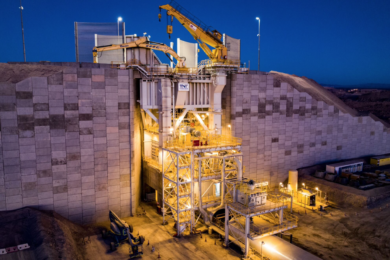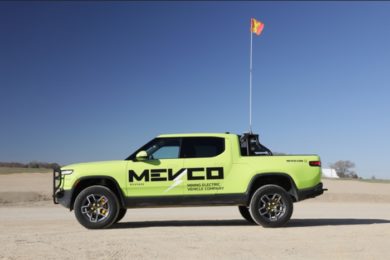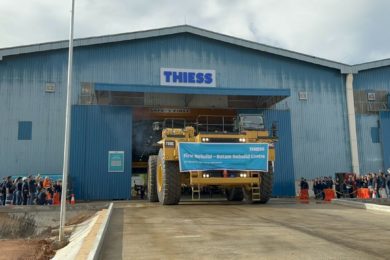After an exhaustive bidding process, Codelco says it has awarded the project for the development, construction and operation of a desalination plant and its complementary infrastructure to supply water to the Chuquicamata, Radomiro Tomic and Minister Hales divisions, which will allow the company to gradually increase , the use of seawater with respect to the use of mountain water in all its operations located in Calama.
The project covers a seawater desalination plant with an initial design capacity of 840 l/s, with expansion potential at 1,956 l/s, which includes maritime works & a water supply system that will run over 160 km, with pipes and the necessary electrical infrastructure to pump the water to more than 3,000 m high. Piping will begin south of the city of Tocopilla and reach the industrial water reservoir for the supply of desalinated water in the Radomiro Tomic Division.
The BOOT (Build-Own-Operate-Transfer) tender was awarded to a consortium led by Marubeni Corporation (50%) which is joined by Transelec (30%) and Techint Chile (20%). Engineering, procurement and construction (EPC) will be the responsibility of Techint Chile, while operations and maintenance will be carried out by a separate Aguas Nuevas-IDE-Transelec consortium. Construction – which will require approximately 2,700 workers during its peak – is expected to begin in the first quarter of 2020 and the plant to be operational in 2022. Japan’s Marubeni, with a presence in Chile since 1957 and a large local water operator since 2006, has vast experience in the development of these types of projects. Recently, one of the world’s largest desalination projects in Saudi Arabia was awarded to the company.
Transelec Group is the controller of Chile’s main electric power transmitter, of the same name. Techint Chile is a Chilean company that is part of Techint I&C, specialised in engineering and construction in various sectors around the world. One of its main markets is mining, in which it has experience in designing and building mineral processing plants, salt and desalinated seawater drive systems (aqueducts and pumping stations).
The project will be developed through a BOOT business model, so the consortium will have the obligation to supply desalinated water to Codelco through the construction of the plant and its annexed systems, and then transferred to the state company at the expiration of the contract, that is, 20 years after the start of the operation.
The desalination plant and other similar projects planned for the Antofagasta region point to a near future that by 2029, of all the water that mining will require in Chile’s main copper mining region, 64% will come from the ocean. Therefore, it is considered a key project that will allow the state mining company to continue with the sustainable development of its operations in the northern district.










